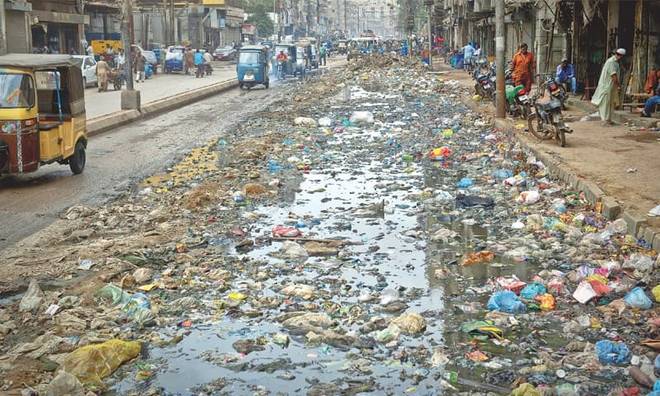‘Failure of national policy responsible for poor sanitation’
The Registrar of Environmental Health Officers Registration Council of Nigeria (EHORECON), Dr Dominic Abonyi, has said that the failure of circulation and implementation of the 2005 National Environmental Sanitation Policy has led to the current situation where government establishments require sanitation services. DrAbonyi noted this at the official flag off of the Routine Sanitary Inspection […]

FILE PHOTO

The Registrar of Environmental Health Officers Registration Council of Nigeria (EHORECON), Dr Dominic Abonyi, has said that the failure of circulation and implementation of the 2005 National Environmental Sanitation Policy has led to the current situation where government establishments require sanitation services.
DrAbonyi noted this at the official flag off of the Routine Sanitary Inspection and Environmental Health Assessment exercise of Federal Government establishments in Abuja recently.
He noted that sanitary inspection of premises is the hub upon which other sanitation services can be rendered, saying, “Sanitary inspection offers a veritable platform for detecting and correcting defects and establishing sanitation service needs apart from offering greater opportunities for real time community education on sanitation and other environmental health matters.”
While noting that the focus of the exercise is not to prosecute or present establishments visited in bad light, he said it rather provided an opportunity to offer advisory services on the current state of sanitation and occupational hygiene situations in Federal Government establishments.
The exercise, according to him, will provide opportunity for self-correction, create better understanding of the profession of environmental health as well as sustain implementation of the provisions of the sanitation policy document.
In his remark, the Director of Pollution, Charles Ikeah, said the exercise is important going by the fact that environmental health condition of most government establishments had deteriorated greatly, adding that the deterioration was due to lack of adequate sanitary facilities, unattended heaps of refuse and junk packed within the office premises and dilapidated building structures.
He said the sanitary inspection exercise is to ensure that nuisances that pose health challenges at government premises are identified and abated.
“It will also serve as a means of awareness creation to the public on good sanitation and hygiene practices to avoid the spread or outbreak of preventable diseases such as Lassa fever, cholera, malaria, typhoid and toilet infections,” the director stated.
